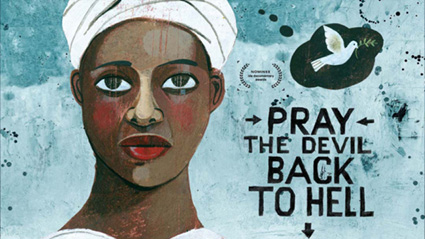Each year, Africa celebrates the strength and resilience of women and their contribution to society and country. This year the month-long tribute provided an opportunity to pay tribute to the generations of African women whose struggles laid the foundation for empowering women and achieving gender equality.
South Africa’s recent National Women’s Day, which annually pays tribute to all African women, forms part of South Africa’s Women’s Month which provides an opportunity to pay tribute to the generations of women whose struggles laid the foundations for the progress made in empowering women and achieving gender equality.

“The 1956 protest saw members of the Federation of South African Women (FSAW) rally against the apartheid government. The protest was supported by mothers, daughters, sisters and friends who decided enough was enough and came together to initiate change,” according to International Women’s Day organizers.
African women across the continent have a history of revolutionary struggle. According to many published reports, in the West African country of Nigeria, under Great Britain’s colonial rule, there occurred what colonial historians called the “Aba Women’s Riots of 1929,” but it should be termed the Aba Women’s Rebellion. “This was touched off by the imposition of direct (colonial) taxation and the introduction of new local courts and especially of warrant chiefs.”
The roots of the rebellion evolved in 1914, when the first Nigerian colonial governor, Lord Frederick Lugard, instituted the system of indirect rule in Southern Nigeria. Under his plan British colonial administrators would rule locally through “warrant chiefs,” essentially Igbo individuals appointed by the governor.
According to blackpast.org, “In November of 1929, thousands of Igbo women congregated at the Native Administration centers in Calabar and Owerri as well as smaller towns to protest both the warrant chiefs and the taxes on the market women. Using the traditional practice of censoring men through all night song and dance ridicule (often called ‘sitting on a man’), the women chanted and danced, and in some locations forced warrant chiefs to resign their positions.”
Blackpast.org noted that the women also attacked European-owned stores and Barclays Bank and broke into prisons and released prisoners. “They also attacked Native Courts run by colonial officials, burning many of them to the ground. Colonial Police and troops were called in. They fired into the crowds that had gathered at Calabar and Owerri, killing more than 50 women and wounding over 50 others. During the two-month ‘war’ at least 25,000 Igbo women were involved in protests against British officials.”
In Liberia, African women used an organized “sex strike” to end civil war. For more than a decade, Liberia had been struggling to recover from a civil war. The 2008 documentary “Pray the Devil Back to Hell” depicts the extraordinary story of a group of West African women who banded together to end their nation’s second bloody civil war.
Leymah Gbowee, leader of the Liberian Mass Action for Peace, in 2008 told National Public Radio (NPR), “Liberia had been at war for so long.”
“War fatigue, not having anything to lose because you lost everything. Being pushed so far back physically, psychologically, emotionally, spiritually, every way that we had two options. To come to death or fight back. And we decided to fight back. Not in a conventional way of the cowards that we had as warlords, but as heroes and heroines, meaning we used our bodies, put ourselves out there and conquered the evil force.”
Gbowee later added, “Well, I must admit, in the urban area where I operated from, it was a bit difficult because every day we got stories of women coming back and saying, I had no control. But in the rural areas it was really, really successful because the women they had smaller communities, they were able to stay together and be together so they were together for like months at night, keeping vigils, praying together. So they could keep it on for a much longer time. But for us in the urban area, it was quite difficult.”
In 2019 it was the imposing symbol in Northeast Africa of engineering and architecture student, Alaa Sarah, clad in white in Nubian cultural garb and standing atop a car that led demonstrators with poetry in protest against Omar al-Bashir’s near-30-year reign.
She represented the fact that for months, the women of Sudan had been at the forefront of protests and sit-ins against the dictatorial regime of al-Bashir and his brutal Rapid Support Force militia.
Recently in London, the “Sudanese Women in the Diaspora for Ending the War” conference emphasized the importance of agency, empowerment, and justice for Sudanese women. Organized by the Sudanese Community and Information Center’s (SCIC) women’s branch, the event discussed the role of Sudanese women in the war and featured lectures, discussions, question-and-answer sessions, poetry, and memorial videos commemorating missing women.
Follow @JehronMuhammad on X, formerly known as Twitter













